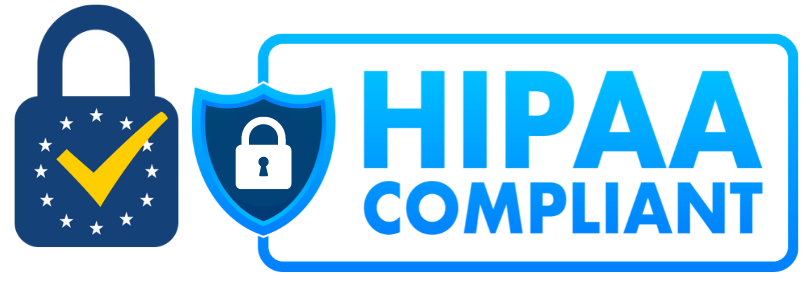5 bewährte Tipps zum Verhandeln von Geschäftsverträgen wie ein Profi
Negotiating business contracts can feel intimidating, especially if you’re unsure where to start or what it really means to negotiate business contracts. Many professionals struggle with understanding the nuances of contract terms, deadlines, and obligations. But mastering this skill isn’t just for lawyers, it’s for anyone who wants to protect their interests and build stronger business relationships.
In this guide, we’ll break down what it means to negotiate business contracts, why it matters, and share five proven tips to help you approach every negotiation with confidence, strategy, and results.
1. Understand the True Meaning of Negotiating Business Contracts
It is important to understand what the concept of negotiation of business contracts is before entering into any contract. A lot of workers presume that it is just about the price, but it is much more than that.
Negotiation entails laying down deliverables, due dates, assignments, and risk sharing which in effect is drawing up the deal to ensure that you do not lose but instead generate some value for both parties. Ask yourself, what is negotiating business contracts to you?
This is important because knowing that, you can enter negotiations in a tactical manner, predict objections, and come out as a confident partner who knows his or her stuff and not one who is struggling to justify his or her terms at the last minute.

2. Set Your Goals and Boundaries
It is just as foolish to negotiate without a plan as to sail without a compass. Specify your goals, the lowest acceptable results, the best conditions, and possible trade-offs. As an example, when your client demands a higher turnaround, can you negotiate more compensation instead? Knowing what cannot go and what can be bargained will not make you agree to unfriendly conditions when you are in a tight spot.
The step is important so that you are not merely responding at the moment but instead guiding the discussion to something where both parties gain. By being able to define these boundaries beforehand, you will be more confident, prevent a feeling of regret, and show your negotiation side in a more professional manner.
3. Build Rapport Before Discussing Terms
Individuals enjoy working with a person whom they trust. It is always best to get to know your client before discussing the terms of the contract. Encourage them to ask questions regarding what they require and listen. Listen to them and demonstrate that you are listening.
Find common ground to make the discussion pleasant. It is possible to share little stories or experiences. As an illustration, discuss some of the difficulties that you encountered in previous projects or deadlines. This is how you are familiar with what they are going through.
When the clients feel that they are connected, then it is easy to come to an agreement that is acceptable to both parties. The development of a good relationship at the beginning of the negotiation makes the entire process easier and joyful.
4. Offer Value, Not Just Numbers
Clients don’t just pay for your time, they pay for what you can do. When you negotiate business contracts, talk about the good results you bring, not just the cost per hour. For example, show how your skills, speed, or special work help the client succeed.
This way, the conversation is about the benefits, not only the money. When clients see the value, it’s easier to ask for fair pay. People are more likely to agree to a contract when they know it helps them get real results.

5. Address Potential Challenges Upfront
Good negotiators think about problems before they happen. Did past projects have delays or extra work? Use what you learned to make rules in your contract, like deadlines, limits on changes, and clear instructions. This helps everyone understand what to expect.
By talking about possible problems early, you show you are fair and smart. It also makes your client trust you more. Being clear and organized in your contracts keeps things running smoothly and helps both sides feel happy with the deal.
FAQs
What are the 5 C’s of negotiation?
The 5 C’s of negotiation are Character, Communication, Conviction, Creativity, and Compromise. They help you stay honest, talk clearly, believe in your ideas, think of solutions, and meet the other person halfway when you negotiate business contracts.
What are the big 5 in negotiation?
The big 5 are Preparation, Relationship, Value, Communication, and Flexibility. These steps make it easier to reach an agreement that works for both sides. They show what it really means to negotiate business contracts well.
Was ist die 70/30-Regel bei Verhandlungen?
The 70/30 rule means you listen 70% of the time and talk 30%. Listening helps you understand the other person’s needs and find better ways to negotiate business contracts.
What are the 4 C’s of negotiation?
Die 4 K's sind Clarity, Confidence, Creativity, and Cooperation. They guide you to explain your ideas clearly, stay confident, find smart solutions, and work together during negotiations.
What is the 5 step negotiation process?
The 5 steps are Prepare, Discuss, Propose, Bargain, and Agree. This process shows what it means to negotiate business contracts step by step, so both sides are happy with the result.
Abschließende Überlegungen
Negotiating business contracts doesn’t have to be hard or scary. By planning, knowing your goals, and listening carefully, you can make deals that help both sides. Remember to keep your terms clear, focus on value, and watch for problems before they happen. Using the right Werkzeuge can make everything easier.
Zum Beispiel, AiSign lets you create, send, and manage contracts quickly with AI-powered templates and secure e-signatures. You can save time, avoid mistakes, and make sure your agreements are legal and safe. Start smart, stay organized, and negotiate like a pro.
Testen Sie AiSign kostenlos für 30 Tage, keine Kreditkarte erforderlich
Erleben Sie Leichtigkeit und Effizienz bei der Verwaltung Ihrer Geschäftsverträge. Mit unserer Plattform können Sie Verträge mit KI-gestützten Tools erstellen, Dokumente online versenden und unterzeichnenund mehr. Verabschieden Sie sich von kompliziertem Papierkram und genießen Sie optimierte Arbeitsabläufe. Die Tools von AiSign sind für Freiberufler, kleine Unternehmen und große Konzerne konzipiert. Melden Sie sich noch heute für einen kostenlosen 30-Tage-Test an.

Über den Autor
Julie Fortuna ist eine talentierte Autorin für AiSign, die sich darauf spezialisiert hat, komplexe Ideen zu vereinfachen. Mit ihrem Gespür für klare und ansprechende Kommunikation hilft Julie den Lesern, die neuesten Strategien und Trends zu verstehen.





